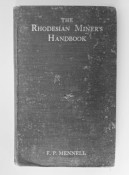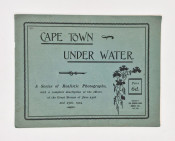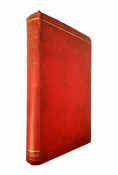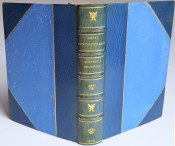Original hand-written letter by Lord Robert Baden-Powell, dated 1 March, 1936 on The Trout Bungalow (Nottingham Road, Natal) letterhead. Baden-Powell writes to an unnamed gentleman (possibly Senator H.J. Gibbon), asking for information about British assistance, if any, to the early Boer Voortrekkers against the Zulus.
Baden Powell was throughout his life a prolific writer and this letter was probably written in connection with his book “African Adventures” which was published the following year. One page, folds but otherwise fine. On Ujjain paper, letter comes with an unrelated envelope dated May 1938, stamped Pietermaritzburg and addressed to Senator Gibbon. Some folds, else very good.
In 1876 Baden-Powell joined the 13th Hussars in India with the rank of lieutenant. In 1880 he was charged with the task of drawing maps of the Battle of Maiwand. He enhanced and honed his military scouting skills amidst the Zulu in the early 1880s in the Natal Province of South Africa, where his regiment had been posted. Baden-Powell's skills impressed his superiors and in 1890 he was brevetted Major as Military Secretary and senior Aide-de-camp to the Commander-in-Chief and Governor of Malta. He was posted to Malta for three years, also working as intelligence officer for the Mediterranean for the Director of Military Intelligence. He frequently travelled disguised as a butterfly collector, incorporating plans of military installations into his drawings of butterfly wings. In 1884 he published Reonnaissance and Scouting.
Baden-Powell returned to Africa in 1896, and served in the Second Matabele War, in the expedition to relieve British South Africa Company personnel under siege in Bulawayo. This was a formative experience for him not only because he commanded reconnaissance missions into enemy territory in the Matopos Hills, but because many of his later Boy Scout ideas took hold here.
After Rhodesia, Baden-Powell served in the Fourth Ashanti War in Gold Coast. In 1897, at the age of 40, he was brevetted colonel (the youngest colonel in the British Army) and given command of the 5th Dragoon Guards in India. A few years later he wrote a small manual, entitled Aids to Scouting<span, a summary of lectures he had given on the subject of military scouting to help train recruits.
Educated at Charterhouse School, Baden-Powell served in the British Army from 1876 until 1910 in India and Africa. In 1899, during the Second Anglo-Boer War in South Africa, he successfully defended the town in the Siege of Mafeking. The siege was lifted on 17 May 1900, Baden-Powell was promoted to major-general and became a national hero.
Several of his books, written for military reconnaissance and scout training in his African years, were also read by boys. In August 1907, he held a demonstration camp, the Brownsea Island Scout camp, which is now seen as the beginning of Scouting. Based on his earlier books, particularly Aids to Scouting, he wrote Scouting for Boys, published in 1908 for boy readership. In 1910 Baden-Powell retired from the army and formed The Scout Association.
The first Scout Rally was held at The Crystal Palace in 1909. Girls in Scout uniform attended, telling Baden-Powell that they were the "Girl Scouts". In 1910, Baden-Powell and his sister Agnes Baden-Powell started the Girl Guide and Girl Scout organisation. He gave guidance to the Scout and Girl Guide movements until retiring in 1937. Baden-Powell lived his last years in Nyeri, Kenya, where he died and was buried in 1941. His grave is a national monument. -wikipedia
- Overall Condition: Very Good
- Sold By: Richmond Books and Prints
- Contact Person: John Donaldson
- Country: South Africa
- Email: [email protected]
- Telephone: 081 270 8827
- Preferred Payment Methods: Credit Card, Electronic Transfer & Paypal
- Trade Associations: AA Approved

Similar lots in the current auction View all
Click on an item to view more details and to bid.





















